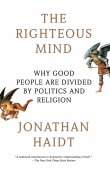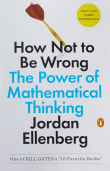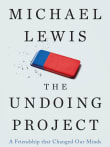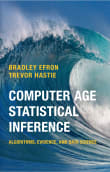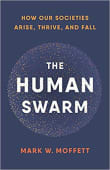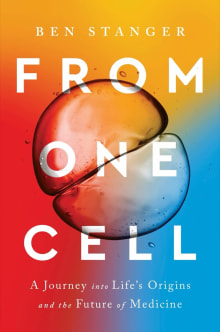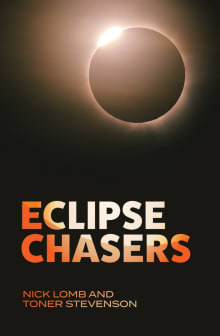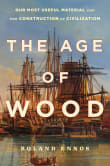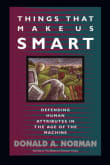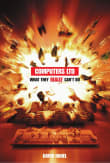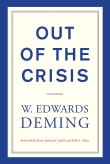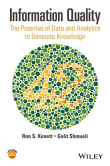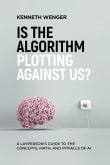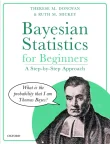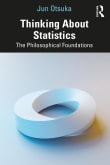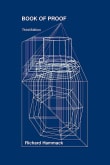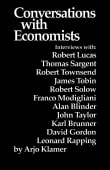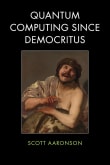The Book of Why
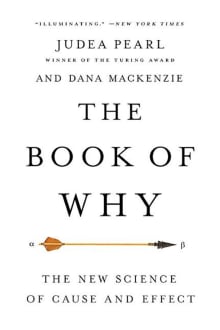
Book description
'Wonderful ... illuminating and fun to read'
- Daniel Kahneman, winner of the Nobel Prize and author of Thinking, Fast and Slow
'"Pearl's accomplishments over the last 30 years have provided the theoretical basis for progress in artificial intelligence and have redefined the term "thinking machine"'
- Vint Cerf, Chief…
Why read it?
6 authors picked The Book of Why as one of their favorite books. Why do they recommend it?

We’ve all heard (and likely said), “Correlation is not causation,” but after reading this book you’ll look at both correlation and causation in a whole new way.
Not only is the statistical reasoning in this book flawless, but the examples given are surprising and fascinating (like how a genetics researcher is responsible for the Plinko game on the game show The Price Is Right; he built the pinball-sorting board to model how inherited traits distribute into a bell-shaped curve).

In the ongoing debates over artificial general intelligence (AGI), Judea Pearl is taking a firm stand: He argues that an intelligent robot should be able to reason about causality and that the currently fashionable approaches to AI miss this aspect.
A celebrated AI researcher and a Turing Prize laureate, Pearl has developed an amazingly original approach to this problem. This book is a high-end popular exposition of his approach.
But it’s so much more than that. It’s a history of statistics and its conflicted attitude to causality. It’s a story of heroes (or villains?) in this history. And it’s a…
From Ran's list on scholarly and popular-science books that both pros and amateurs can enjoy.

The previous book is about the most prevalent forms of AI, many of which focus on prediction or classification.
For example, a bank may use an AI system that utilizes data about those applying for a loan to predict whether they're likely to default. The judicial system might use an AI model which takes into account a convicted person's attributes in order to predict whether that person is likely to re-offend. A hospital might observe attributes of cells in order to classify them as cancerous or not.
Judea Pearl, a computer scientist at UCLA, has been in a long-running effort…
From Michael's list on quant geeks.
If you love The Book of Why...

Causality is a topic that has been of interest for centuries. Statisticians have been careful to emphasize that correlation is not causation as lurking variables can show apparent relationships which are misleading. The first author is a main force behind modern efforts to address causality models. He developed graphical representations linking variables and a method of intervention, called the “do” calculus, which enables the study of causal effects in observed data. The historical perspective provided in the book makes it an excellent reference to anyone interested in the topic.
From Ron's list on how numbers turn into information.

This book describes the culmination of Judea Pearl’s research on causation. For his work, Pearl won the Turing Award, which is widely considered the equivalent of the Nobel Prize for computer science. The book presents a simple, yet powerful language to talk and reason precisely about causation, a topic scientists and philosophers have studied for centuries. In addition to the well-developed theory and the many well-chosen examples, what I love about this book is that it illustrates that computer science is not just about producing software, but that it can create powerful general theories about the world.
From Martin's list on computer science without coding.

When our descendants look back and ask, “Which scientist’s work changed the way we think, around the year 2000?”, I am prepared to bet that Judea Pearl will be top of the list. Before Pearl, statisticians refused to allow any model of the world into their analysis, thinking it wise to say “correlation does not imply causation,” while remaining scrupulously blind to the reasonableness of some models over others. But the fact that cockerels crow at dawn really is evidence that sunrise causes crowing, and does not constitute any kind of evidence that crowing causes sunrise.
By including such…
From Luke's list on grand, unifying ideas for how the world works.
If you love The Book of Why...
Want books like The Book of Why?
Our community of 12,000+ authors has personally recommended 100 books like The Book of Why.


